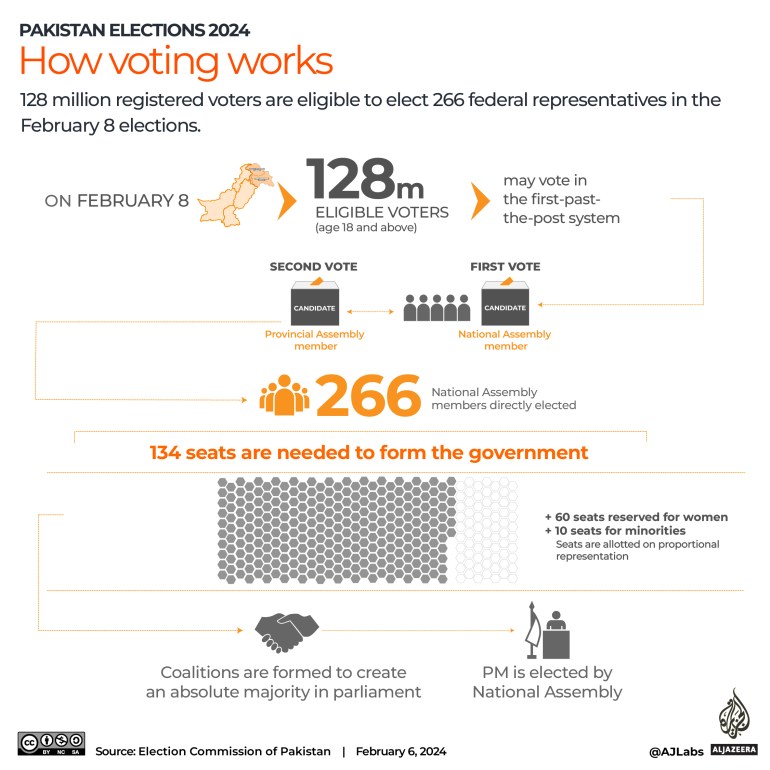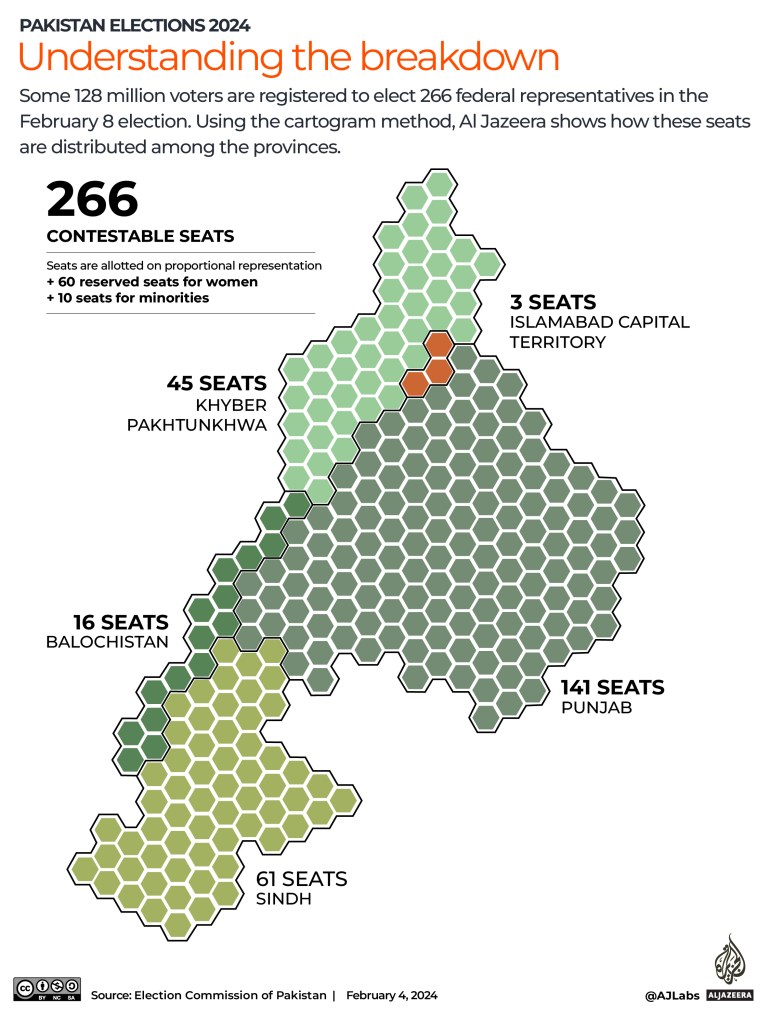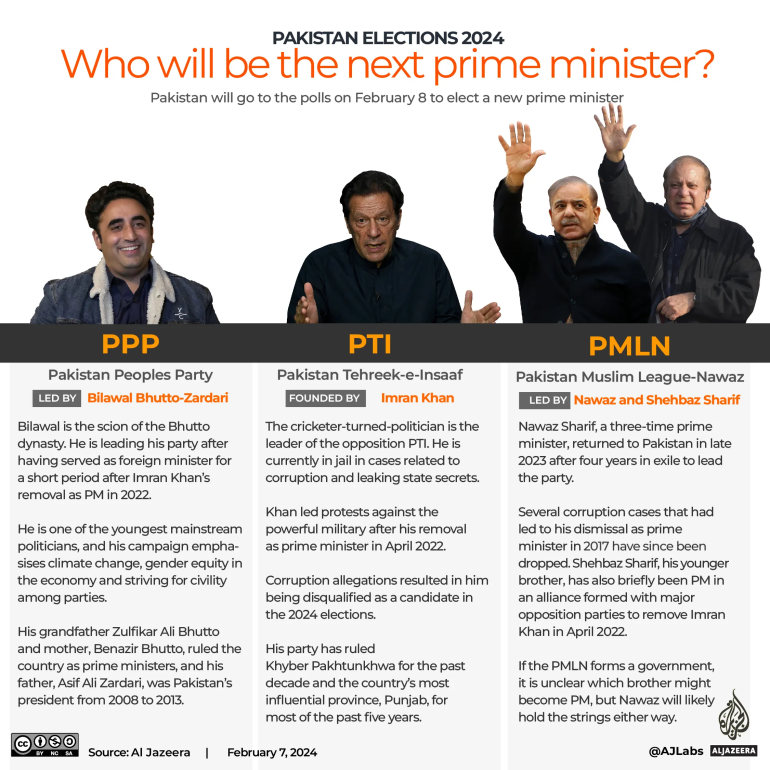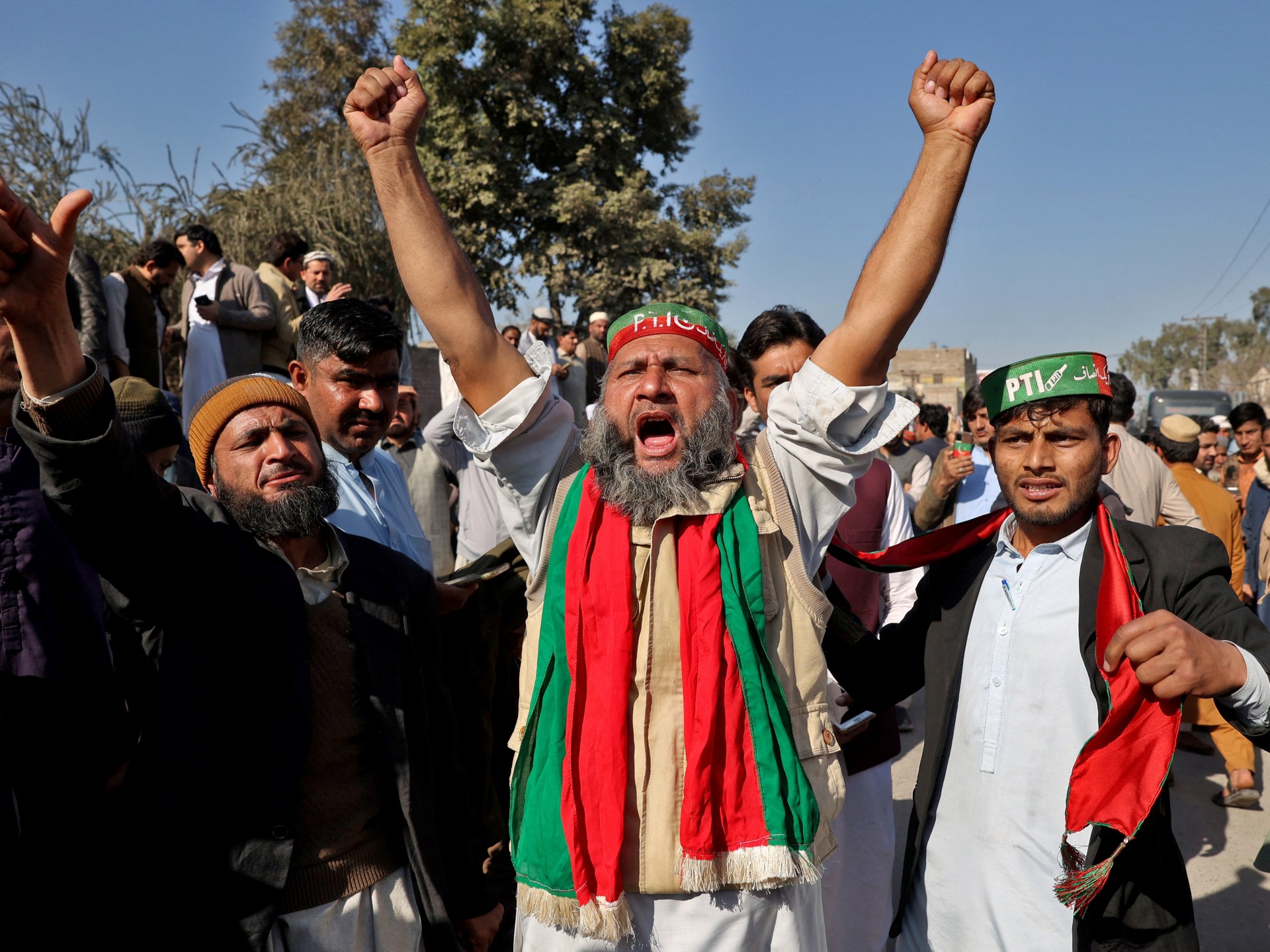About 128 million voters were registered to vote in national and state elections amid political and economic challenges.
Pakistan is counting votes in a general election marred by violence by armed groups and a suspension of mobile phone services. More than 128 million people were registered to elect representatives of the National Assembly and the nation’s four provincial legislatures.
The results will appear below as soon as they are available.
How voting works in Pakistan
Each voter can cast two votes — one for the National Assembly and the other for the provincial assembly.
The National Assembly comprises 336 seats – 266 to be decided through direct voting, while 60 seats are reserved for women and 10 for minorities which are allotted on the basis of 5 percent proportional representation in the federal parliament.
A party or a coalition will need 134 seats to form the government.

Breakdown of national seats
Based on the results of the national census conducted in 2023, the constituencies went through a delimitation process. The boundaries of many constituencies were altered and the number of seats was reduced from 272 to 266.
- Punjab: 141 seats
- Sindh: 61 seats
- Khyber Pakhtunkhwa: 45 seats
- Balochistan: 16 seats
- Islamabad Capital Territory: 3 seats

Who are the leading candidates to be Pakistan’s next prime minister?
A crackdown on the biggest opposition party, Pakistan Tehreek-e-Insaf (PTI), and its leader, former Prime Minister Imran Khan, fuelled concerns that the polls would not be free and fair. Here are the country’s major parties:
Pakistan Muslim League-Nawaz (PMLN)
Nawaz Sharif, a three-time prime minister, returned to Pakistan after four years – in late 2023 – to assume the role of the head of the party. Several corruption cases that had led to his dismissal as prime minister in 2017 have since been dropped. Shehbaz Sharif, his younger brother, has also briefly been prime minister in an alliance with key opposition parties to remove Khan as prime minister in April 2022. If the PMLN forms a government, it is unclear which brother might become PM, but Nawaz will likely hold the strings either way.
- Seats won in 2018: 64
- Seats won in 2013: 126
Pakistan Peoples Party (PPP)
Bilawal Bhutto Zardari is the scion of the Bhutto dynasty. He will be leading his party after having served as foreign minister for a short period after Khan’s removal as PM in 2022. One of the youngest mainstream politicians, his campaign pays attention to climate change, gender equity in the economy, and striving for civility among parties. His grandfather Zulfikar Ali Bhutto and mother Benazir Bhutto ruled the country as prime ministers, and his father Asif Ali Zardari was Pakistan’s president from 2008 to 2013.
- Seats won in 2018: 43
- Seats won in 2013: 34
Pakistan Tehreek-e-Insaf (PTI)
Cricketer-turned-politician Imran Khan is the leader of the opposition PTI party. He is currently in jail in cases related to corruption and leaking state secrets. He led protests against the country’s powerful military after his removal from office in 2022. His conviction in a corruption case resulted in him being disqualified as a candidate. His party has ruled Khyber Pakhtunkhwa for the past decade, and the country’s most influential province, Punjab, for most of the past five years.
- Seats won in 2018: 116
- Seats won in 2013: 28

#Pakistan #election #Live #results #Elections #News


